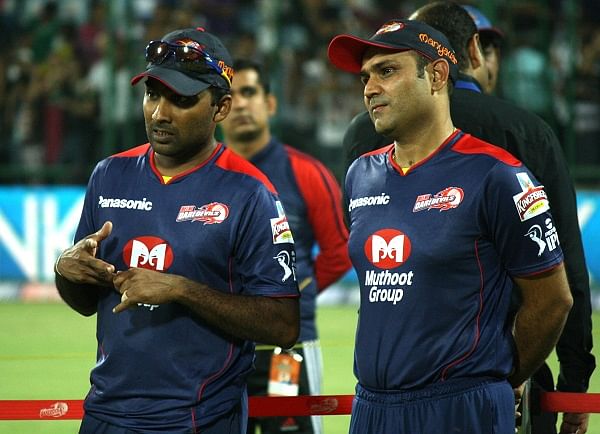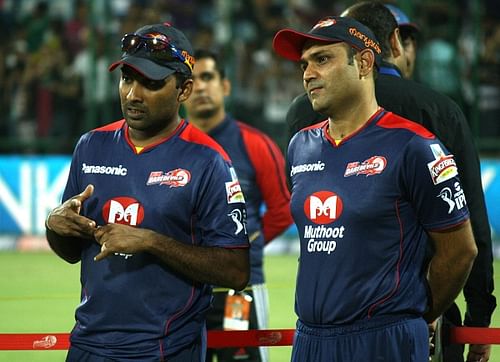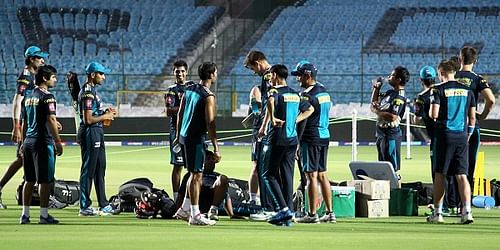
IPL 6: What instability does to good cricketing teams - Lessons from the failures of PWI and DD

When Delhi Daredevils and Pune Warriors ended up contesting for the wooden spoon, no one really seemed surprised. When the Sahara group put the Pune Warriors team together and the GMR group built the Delhi Daredevils team, they would have taken a momentary breath of relief, of satisfaction for having put a strong team together.
In the fifth season, the Daredevils even justified their worth by topping the table in the league phase. But this season, both teams have cut a sorry figure on the field. They have been the butt of many jokes on social media platforms, thanks to their inability to work up any form of consistency.
Arlen Specter famously said, “Stability means respecting precedents”. But the Daredevils have gloriously forgotten why they were so successful last season. Yes, Pietersen was a colossal presence. But, the philosophy has been missed, entirely and with ease. There is too much thought going into the way teams play, too much preparation. One wonders if sometimes, in the blitz and chaos of analysis and over analysis, notepads and think-pads, logic is slowly taking a backseat, almost forgotten like the perpetual bench warmers big teams like MI and KKR ruthlessly ignore.
And what is the simplest logic that any cricketing team should rely on? That stability breeds confidence and confidence breeds success. Teams need time to settle down. Batsmen need to understand what their role is, what they are expected to do. They need to explore the problems they face on their job and have to come up with solutions to tackle those problems. Bowlers need to know what they are expected to do and how they will go about doing what they are expected to do; like Malinga knows, all he is expected to do is crack the batsmen’s toes and he does it with élan.
It is an ironical study, the repeated failures of Delhi and Pune. One may want to work it backwards to see if a pattern could be found. Nietzsche said, “The snake which cannot cast its skin has to die.” But probably, Pune and Delhi are taking this a little too seriously for their own detriment.
Delhi Daredevils don’t have a stable opening pair. Unmukt Chand has been given the opportunity to witness his stump cart-wheeling a couple of times. Warner has moved up and down the order. Sehwag, a near-permanent fixture at the top, has been pushed down. Mahela Jayawardene has been floating around. Morne Morkel has missed a couple of matches. Irfan Pathan looks like the kid who is stuck on the divider not sure which lane he should take. Yadav is fast, but surely, with India’s former bowling coach around, one would have expected him to do a little more than run up and bowl without thought. Surely, he has as much if not greater ability, than the likes of Kevon Cooper, Jaydev Unadkat and Vinay Kumar. To avoid angering Rajasthan Royals fans, let us avoid comparisons with the much more impactful James Faulkner.
Pune Warriors carry the burden of chaos. The Warriors, incredibly as they are named, have fought more battles in their own minds, than on the cricket pitch. A glance at the talent at the disposal of Allan Donald, their coach, would take anyone by surprise. Robin Uthappa, Aaron Finch, Steve Smith, Luke Wright, Angelo Matthews, Manish Pandey, Yuvraj Singh and Mitchell Marsh are a few names you will find on the squad chart. You will back this team to perform better than the Rajasthan Royals, Sunrisers Hyderabad or even Kings XI Punjab, any day of the week. Yet, cricket is rarely played on paper. The greens morph men, so much, that sometimes it is not their abilities but their temperaments that hold sway.
Incredibly, Rajasthan have made a fair share of changes too. But, their core is as rock solid as it can get. Rahane and Dravid have mostly laid an iron foundation at the top, as the most prolific opening pair this season. Binny, Watson and Hodge have been used as sledge-hammers. Faulkner has been the attacking option while Trivedi has been the defensive act.
One doesn’t even need to bring Chennai Super Kings into the picture to explain how important stability is. Pune Warriors, on the contrary, bungled and blundered time and again. That their best T20 player Steve Smith hasn’t played all the matches, in spite of performing so well in the past, is a beamer for cricket lovers, a beamer that sends them to a temporary haze. Manish Pandey has been picked and dropped and then picked and then dropped again. Luke Wright has played a few and missed a few. Mitchell Marsh met the same fate, after destiny handed him a rude jolt in the form of Gayle.

With coaches and management staff that have seen a lot of international cricket, it is surprising to see the stability issue missed in entirety. Eric Simmons and Allan Donald have chopped and changed teams like they were on a farm handling haystacks, as if changing the team would give them the win the present team hasn’t offered. There is a school of thought that says, if things are not going your way, make a change. But analysts would realise that this thought works well for Tests where monotony sets in after a while, dampening teams’ efforts. In T20 though, there is too much happening, way too much for even the audience to handle, leave alone the players. Adding to the chaos by constantly moving things all over the place, would only make world class players, contenders for the wooden spoon.
For DD and PWI, the end of the season would be a relief. And for the owners, the upcoming auction will be a relief too. But one wonders if the lesson has been learnt, the lesson CSK has been advocating for so long.